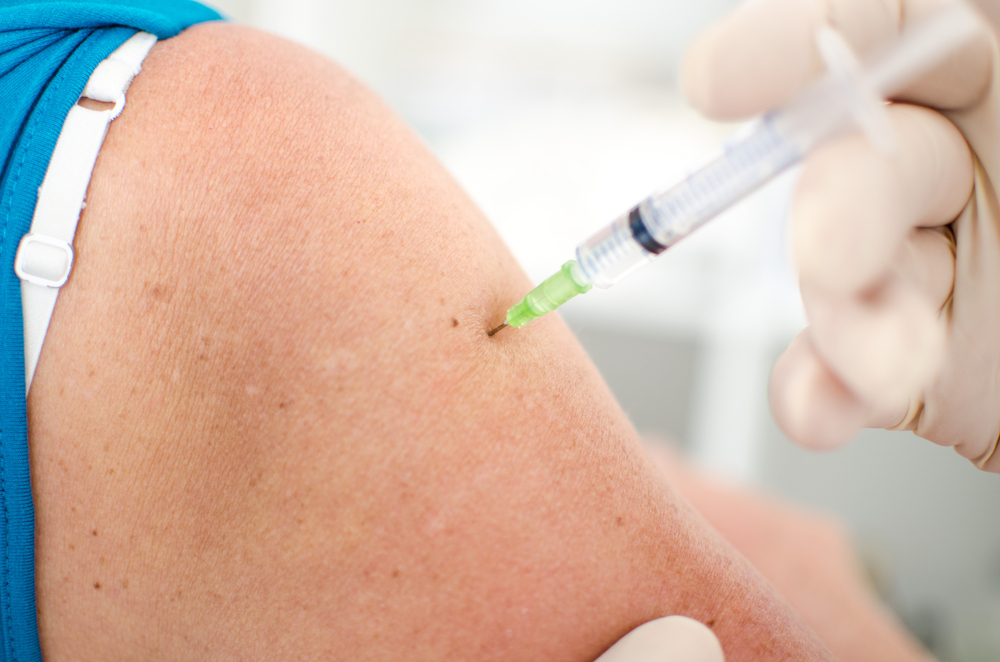Amgen announced that the Committee for Medicinal Products for Human Use (CHMP), under the European Medicines Agency (EMA), has given a positive recommendation for IMLYGIC (talimogene laherparepvec) as a treatment for adult patients suffering from unresectable melanoma determined to be regionally or distantly metastatic (Stage IIIB, IIIC and IVM1a) without bone, brain, lung, or other visceral disease. The next regulatory step for this treatment will be the European Commission’s approval, which would make it the first in its class of oncolytic immunotherapies to be approved.
IMLYGIC (talimogene laherparepvec), often called “T-VEC,” is a cancer-killing (oncolytic) virus currently being studied for the treatment of melanoma and other advanced cancers. The agent, administered via intralesional injection, is designed to cause the death of melanoma tumor cells and initiates an anti-tumor immune system response.
“We are pleased that IMLYGIC has received a positive opinion from the CHMP, and if approved by the European Commission, we look forward to continuing to work with European regulatory authorities to bring this innovative therapy to patients,” said Sean E. Harper, MD, executive vice president of Research and Development at Amgen. “Metastatic melanoma continues to be one of the most difficult-to-treat cancers, often requiring the use of multiple treatment modalities. Despite recent advances, the five-year survival rate for patients who cannot be cured with surgery remains unacceptably low, demonstrating the critical need for additional approaches to control this disease.”
The CHMP’s recommendation draws from the findings of a global, randomized, open-label 436-patient Phase 3 clinical trial that evaluated the efficacy and safety profile of the intralesional injectable in patients with unresectable Stage IIIB, IIIC or IV melanoma, compared to treatment with a granulocyte-macrophage colony-stimulating factor (GM-CSF). The study achieved its primary endpoint, with IMLYGIC seen to significantly improve durable response rate (DRR), defined as the proportion of patients who exhibited a complete response (CR) or partial response (PR) that was maintained for at least 6 months. The secondary endpoint was defined as patients’ overall survival (OS).
According to a press release, common side effects included fatigue, chills, pyrexia, nausea, influenza-like illness, and injection-site pain. These effects were observed in and reported by 98 percent of treated patients; however, all cases were mild to moderate in severity and were easily resolved.
Amgen expects the European Commission’s Marketing Authorization in the coming months. IMLYGIC is currently under review by the U.S. Food and Drug Administration (FDA).


